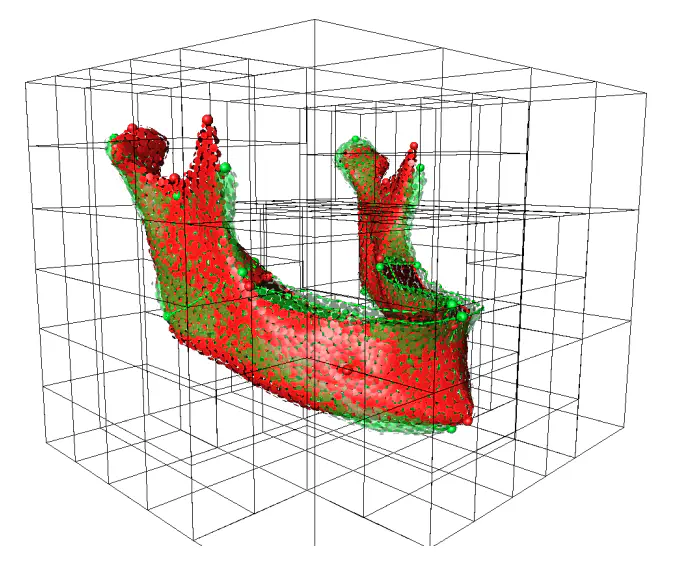
Abstract
The Large Deformation Diffeomorphic Metric Mapping (LDDMM) framework acting on currents is a conceptually powerful tool for matching highly varying shapes. In the classical approach, the numerical treatment is based on currents representing individual particles, and couples the discretization of shape and deformation. This design restricts the capabilities of LDDMM. In this work, we propose to decouple current and deformation discretization by using conforming adaptive finite elements. We show how to efficiently (a) compute the temporal evolution of discrete m-current attributes for any m, and (b) incorporate multiple scales into the matching process. This effectively leads to more flexibility, which is demonstrated in several numerical experiments on anatomical shapes.